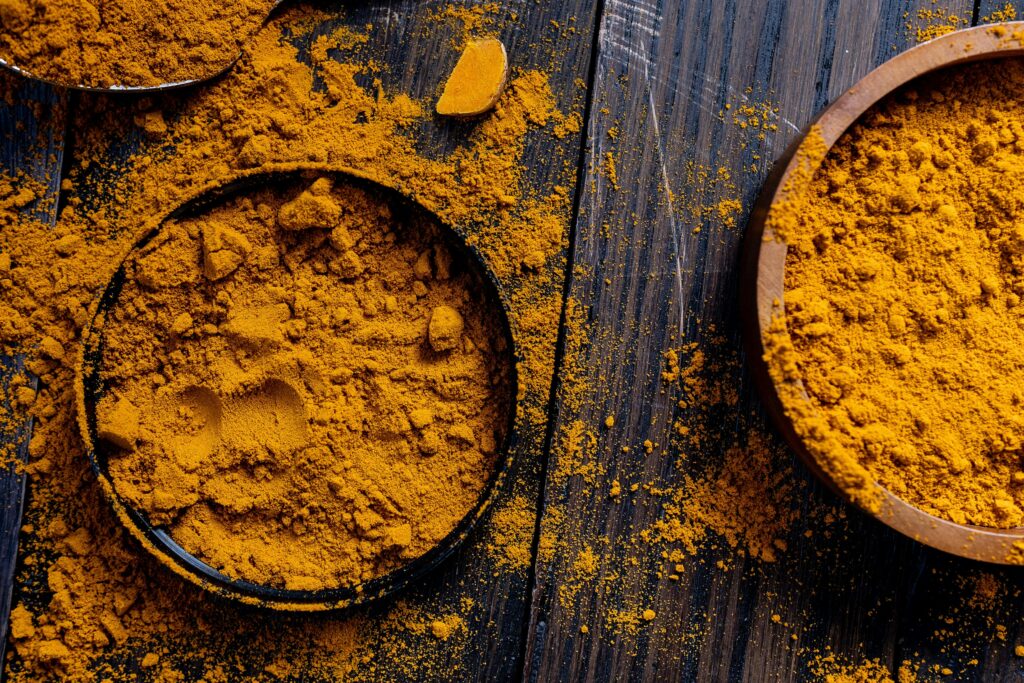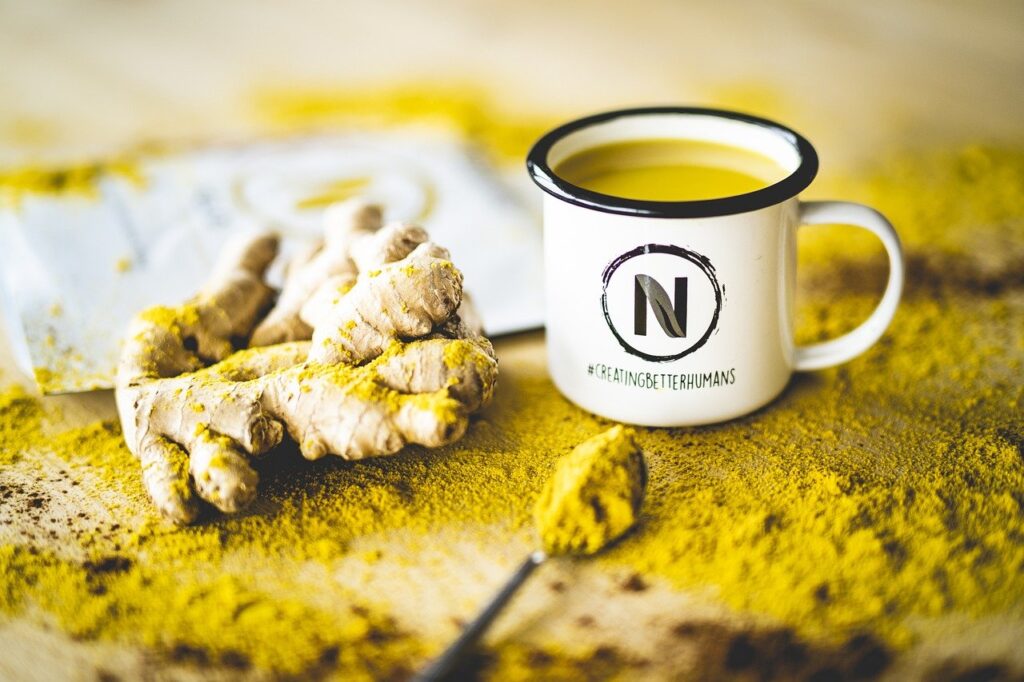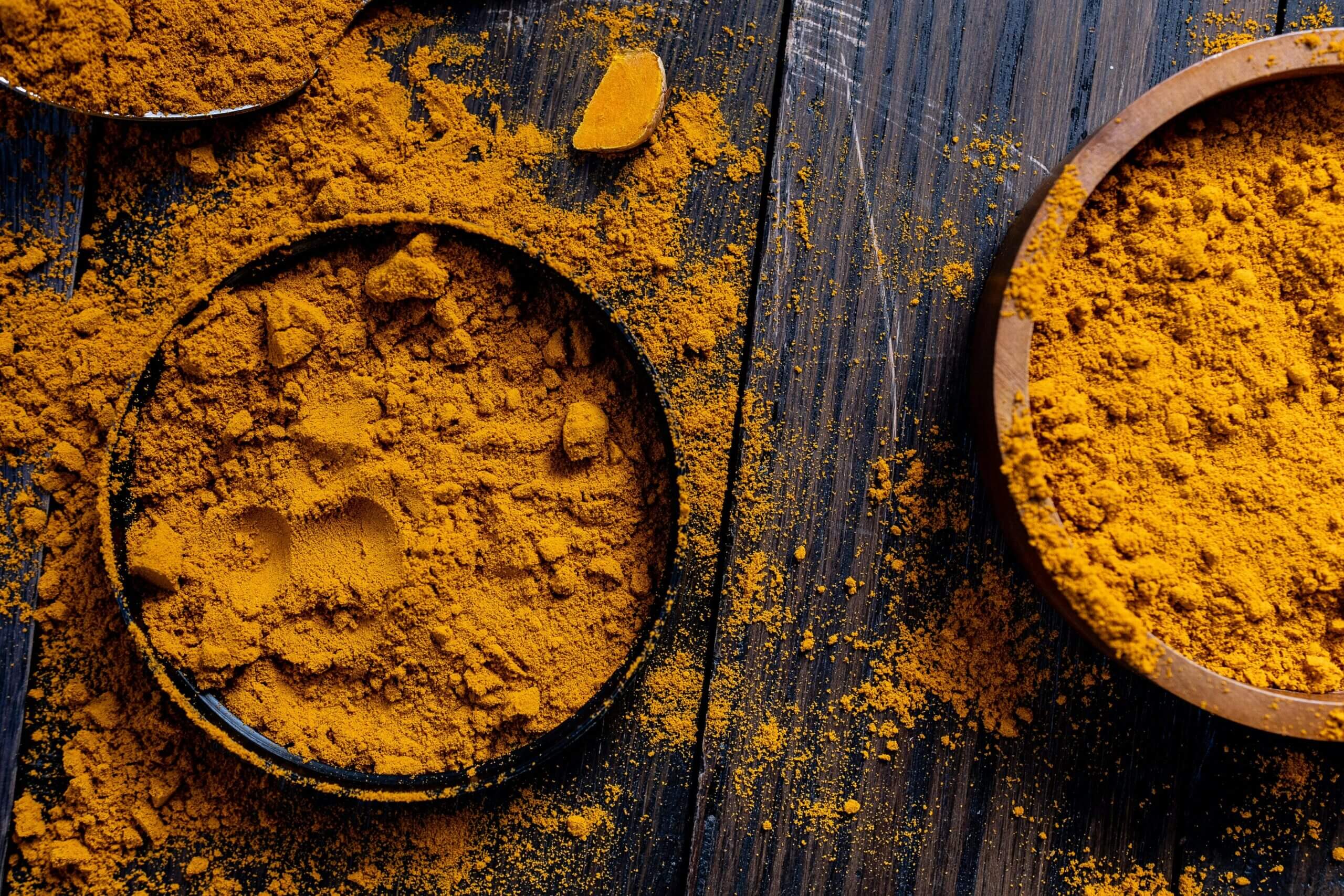In the realm of natural remedies and superfoods, turmeric has earned its status as a culinary and medicinal powerhouse. The Relationship Between Turmeric and Kidneys .Revered for its vibrant hue and earthy flavor, this golden spice has become a staple in many kitchens, touted for its anti-inflammatory and antioxidant properties. However, as with any wellness trend, questions arise about its compatibility with certain health conditions. In this exploration, we delve into the captivating world of turmeric, specifically examining its relationship with kidney health.
While the benefits of turmeric are celebrated far and wide, a subtle dilemma emerges concerning its impact on the kidneys. As we navigate through the complexities of this golden spice, we aim to unveil the truth, separating fact from fiction. Is turmeric a potential ally or adversary for kidney health? Join us on this informative journey as we navigate the delicate balance between embracing the goodness of turmeric and understanding its nuances in relation to the kidneys.

Contents
- 1 The Relationship Between Turmeric and Kidneys
- 1.1 Oxalates and Kidney Stones: The Connection
- 1.2 Moderation is Key:Turmeric and Kidneys
- 1.3 Individual Variability:Turmeric and Kidneys :Turmeric and Kidneys
- 1.4 Consulting Healthcare Professionals:Turmeric and Kidneys
- 1.5 Differentiating Dietary Turmeric and Supplements:Turmeric and Kidneys
- 1.6 Navigating the Balance:Turmeric and Kidneys
- 2 Understanding Turmeric and Its Benefits
- 2.1 Anti-Inflammatory Powerhouse:Turmeric and Kidneys
- 2.2 Antioxidant Armor:Turmeric and Kidneys
- 2.3 Traditional Roots and Culinary Versatility:Turmeric and Kidneys
- 2.4 Potential Cognitive Benefits:Turmeric and Kidneys
- 2.5 Practical Incorporation into Daily Life:Turmeric and Kidneys
- 2.6 Holistic Approach to Well-Being:Turmeric and Kidneys
- 2.7 Cautionary Notes:Turmeric and Kidneys
- 3 What are the negative effects of taking turmeric?
- 4 Benefits of turmeric to people with kidney problems.:Turmeric and Kidneys
- 5 could stop polycystic kidney disease from getting worse?:Turmeric and Kidneys
- 6 How much turmeric should I eat each day?:Turmeric and Kidneys
- 7 When to seek medical advice?:Turmeric and Kidneys
- 8 The short explanation.:Turmeric and Kidneys
- 9 FAQ
The Relationship Between Turmeric and Kidneys
As we embark on the journey of understanding the potential impact of turmeric on kidney health, a crucial aspect to consider is the presence of oxalates within this golden spice. Oxalates are naturally occurring compounds found in many foods, and they play a role in the formation of kidney stones.
Oxalates and Kidney Stones: The Connection
Oxalates are normally happening intensifies tracked down in many plant food sources, including turmeric. In moderate sums, oxalates are by and large viewed as innocuous for a great many people. Be that as it may, for people who are inclined to framing kidney stones, oxalates can represent a worry.
Kidney stones are glasslike structures that structure inside the kidneys or urinary plot. They can differ in size and arrangement, and their development can be impacted by different variables, including diet, hydration levels, and hereditary qualities.
Particular kinds of kidney stones, for example, calcium oxalate stones, are shaped when oxalate ties with calcium in the pee to frame gems. . The Relationship Between Turmeric and Kidneys .These gems can then collect and develop into bigger stones after some time.
For individuals inclined to framing kidney stones, eating food varieties high in oxalates, similar to turmeric, may expand the gamble of stone development. In any case, it’s fundamental for note that the connection between dietary oxalates and kidney stones can differ from one individual to another, and different factors like in general eating regimen, liquid admission, and individual medical issue likewise assume a part.
While keeping away from oxalate-rich food varieties completely may not be essential, people with a background marked by kidney stones might profit from control and equilibrium in their eating regimen, as well as sufficient hydration to assist with forestalling stone development. . The Relationship Between Turmeric and Kidneys .Talking with a medical care proficient or enlisted dietitian can give customized direction on overseeing dietary oxalates and lessening the gamble of kidney stones.
Moderation is Key:Turmeric and Kidneys
Balance is essential while devouring food sources like turmeric, particularly for those with kidney stones or kidney illness. Turmeric offers various medical advantages, including mitigating and cell reinforcement properties, which can uphold in general wellbeing and prosperity. In any case, people with a background marked by kidney stones or kidney illness ought to practice mindfulness and control while devouring turmeric or different food sources high in oxalates.
To stay away from kidney stone worries or kidney sickness, people ought to screen dietary oxalate consumption, remain hydrated by drinking a lot of water over the course of the day, think about calcium consumption with feasts, offset the eating regimen with many supplement rich food sources, and counsel a medical services proficient for customized dietary proposals.
Integrating turmeric into a reasonable and differed feast plan is probably not going to present huge dangers, as it offers various medical advantages, including mitigating and cell reinforcement properties. Consuming turmeric in dishes like curries, soups, or smoothies can add flavor and healthy benefit without hurting.
All in all,. The Relationship Between Turmeric and Kidneys . people with kidney stone worries or kidney illness ought to be aware of their dietary decisions, remain hydrated, and look for direction when expected to partake in the potential medical advantages of turmeric while limiting the gamble of kidney stone development or fueling kidney-related issues.
Individual Variability:Turmeric and Kidneys :Turmeric and Kidneys
Individual reactions to dietary parts like oxalates can change altogether because of different variables. These incorporate generally speaking wellbeing, hydration levels, hereditary inclinations, diet, drugs, and ailments.
Solid kidneys can successfully channel oxalates from the circulation system and discharge them through pee without issues. Notwithstanding, those with compromised kidney capability might experience issues discharging oxalates, expanding the gamble of oxalate aggregation and kidney stone development. Sufficient hydration is essential for weakening substances in pee, including oxalates. Hereditary varieties can influence the body’s capacity to separate and discharge oxalates effectively, making a few people more defenseless to kidney stone development.
Dietary variables can likewise impact oxalate digestion. Devouring calcium-rich food sources close by oxalate-containing food varieties can assist with restricting dietary oxalates in the stomach, decreasing their retention and ensuing discharge in pee. Dietary propensities that advance stomach wellbeing, like probiotic-rich food sources or fiber, may likewise impact oxalate digestion by influencing stomach microbiota.
Drugs and ailments can likewise influence oxalate digestion and kidney stone arrangement.. The Relationship Between Turmeric and Kidneys. People with worries about oxalate utilization and kidney stone development ought to think about their exceptional wellbeing conditions and talk with medical care experts for customized direction.
Consulting Healthcare Professionals:Turmeric and Kidneys
Interview with medical care experts is vital for people with kidney issues or a background marked by kidney stones prior to rolling out critical improvements to their turmeric consumption, especially through supplements. Turmeric enhancements might present dangers because of their higher convergence of dynamic mixtures, like oxalates, contrasted with turmeric utilized in cooking or as a flavor. These expanded fixations might worsen kidney stone arrangement or other kidney-related issues in powerless people. Moreover, turmeric enhancements might interface with specific meds or fuel hidden medical issue, like kidney infection.
Every individual’s wellbeing status and clinical history are interesting, and counseling a medical care proficient considers customized evaluation and direction. Medical care suppliers can screen the impacts of turmeric supplementation on kidney capability and in general wellbeing over the long run, giving proposals to changing supplementation measurement or recurrence on a case by case basis to limit likely dangers and improve wellbeing results.
Now and again, medical care experts might prescribe elective ways to deal with address wellbeing concerns or accomplish explicit wellbeing objectives without depending intensely on turmeric supplements, for example, dietary adjustments, way of life changes, regular cures, or customary clinical therapies. By counseling medical services experts before fundamentally expanding turmeric consumption, . The Relationship Between Turmeric and Kidneys .people can get customized exhortation and direction that considers their extraordinary wellbeing status, history, and expected gambles, guaranteeing protected and compelling utilization of turmeric as a feature of an exhaustive way to deal with wellbeing and prosperity.
Differentiating Dietary Turmeric and Supplements:Turmeric and Kidneys
It’s important to note that concerns about oxalates are often related to high-dose turmeric supplements rather than the amounts typically used in culinary practices. . The Relationship Between Turmeric and Kidneys .The distinction between dietary turmeric and concentrated supplements is crucial in assessing potential risks.
The relationship between turmeric and kidneys underscores the importance of a balanced approach to health. . The Relationship Between Turmeric and Kidneys .While turmeric offers an array of benefits, being mindful of individual health conditions ensures that its consumption aligns with overall well-being.

Understanding Turmeric and Its Benefits
In the realm of natural remedies, few spices have captured as much attention as turmeric. With its rich golden hue and earthy flavor, turmeric not only adds depth to culinary creations but also boasts a treasure trove of health benefits. Let’s embark on a journey to unravel the wonders of turmeric and explore why it has become a wellness darling.
Anti-Inflammatory Powerhouse:Turmeric and Kidneys
Turmeric’s notoriety is generally due to curcumin, a bioactive compound known for its powerful mitigating properties. Ongoing irritation is a critical supporter of different medical conditions, including joint inflammation, cardiovascular infection, disease, and neurodegenerative problems. Curcumin, the essential dynamic part in turmeric, has been widely read up for its capacity to tweak fiery pathways in the body, communicating with numerous atomic targets associated with aggravation.
Various preclinical and clinical examinations have explored the likely remedial advantages of curcumin in overseeing fiery circumstances. The outcomes up to this point have shown promising results, remembering calming and pain relieving impacts for joint inflammation, cardioprotective impacts in cardiovascular wellbeing, against disease impacts in malignant growth, and neuroprotective properties in neurodegenerative issues.
Be that as it may, the bioavailability of curcumin from turmeric is moderately low, with elements like unfortunate retention, fast digestion, and quick end restricting its adequacy in clinical settings. Scientists are investigating techniques to upgrade curcumin’s bioavailability, like utilizing novel plans, joining it with different mixtures, or utilizing conveyance frameworks to work on its assimilation and maintenance in the body.
While more exploration is expected to completely comprehend the remedial capability of curcumin, . The Relationship Between Turmeric and Kidneys .the accessible proof proposes that turmeric and its dynamic part hold guarantee as adjunctive treatments for overseeing fiery circumstances and advancing by and large wellbeing and prosperity.
Antioxidant Armor:Turmeric and Kidneys
Turmeric’s cancer prevention agents are fundamental for cell wellbeing and fighting oxidative pressure, which prompts cell harm and brokenness. This interaction is connected to maturing, cardiovascular illness, neurodegenerative problems, and malignant growth. Turmeric contains cancer prevention agents like curcumin, flavonoids, and phenolic intensifies that cooperate to kill free extremists and safeguard cells from oxidative harm.
Turmeric’s cell reinforcements kill free revolutionaries, keeping them from harming cell parts like DNA, proteins, and lipids. They likewise decrease aggravation by adjusting incendiary pathways and diminishing the development of favorable to fiery particles. Turmeric’s cancer prevention agent properties support the body’s regular protection instruments against natural stressors, upgrading cell flexibility.
Turmeric’s cell reinforcements additionally advance skin wellbeing by safeguarding against oxidative harm, keeping up with collagen trustworthiness, and supporting generally skin wellbeing and appearance. Moreover, turmeric might uphold heart wellbeing by safeguarding against oxidative harm to veins, decreasing aggravation in the cardiovascular framework, and supporting heart wellbeing.
Integrating turmeric into the eating regimen, either through culinary use or supplementation, can improve cell reinforcement safeguards and advance generally wellbeing. Nonetheless, it is critical to take note of that turmeric’s cell reinforcements alone are sufficiently not. . The Relationship Between Turmeric and Kidneys .Consolidating turmeric utilization with other cell reinforcement rich food varieties, ordinary activity, sufficient rest, and stress the board can additionally uphold ideal wellbeing and imperativeness.
Traditional Roots and Culinary Versatility:Turmeric and Kidneys
Turmeric’s medicinal use dates back centuries in traditional medicine systems such as Ayurveda. Beyond its therapeutic applications, it has seamlessly woven itself into the fabric of global cuisines. From curries to golden lattes, turmeric’s culinary versatility allows individuals to savor its benefits in diverse and delectable ways.
Turmeric, a therapeutic force to be reckoned with, has a rich history in customary medication frameworks like Ayurveda and has turned into a dearest fixing in worldwide foods because of its dynamic tone and gritty flavor. It is a foundation of Indian cooking, utilized in curries, dals, rice pilafs, and vegetable sautés.
In Southeast Asian cooking styles, like Thai, Indonesian, and Malaysian food, turmeric contributes flavor and variety to dishes like Thai yellow curry, Indonesian rendang, and Malaysian laksa. In Center Eastern food, turmeric is much of the time utilized in zest mixes like Ras el Hanout or Baharat, used to prepare meats, rice dishes, and stews. It is likewise a critical fixing in Persian saffron rice, adding a brilliant tone and unobtrusive flavor.
Turmeric drinks, like brilliant milk, turmeric tea, and turmeric-imbued smoothies, offer an encouraging and tasty experience while integrating turmeric’s medical advantages into day to day schedules. The culinary flexibility of turmeric permits people to partake in its wellbeing advancing properties in assorted and delightful ways. Via consistently meshing turmeric into worldwide cooking styles, . The Relationship Between Turmeric and Kidneys .people can appreciate its advantages while investigating the rich woven artwork of flavors and culinary customs from around the world. Turmeric keeps on rousing culinary innovativeness and feed both body and soul.
Potential Cognitive Benefits:Turmeric and Kidneys
Arising research is uncovering turmeric’s capability to further develop cerebrum wellbeing, possibly tending to mental deterioration and diminishing the gamble of neurodegenerative sicknesses like Alzheimer’s and Parkinson’s. Curcumin, the essential bioactive compound in turmeric, is accepted to have calming and cell reinforcement properties, which could uphold cerebrum wellbeing.
Curcumin’s capacity to regulate provocative pathways might assist with lessening aggravation in the cerebrum, safeguarding against neuronal harm and mental degradation. Its strong cell reinforcement properties kill free extremists and forestall oxidative harm to synapses, advancing neuronal endurance and capability. A few examinations recommend that curcumin may advance neurogenesis,
the cycle by which new neurons are created in the cerebrum. By invigorating the development of cerebrum determined neurotrophic factor (BDNF) and other development factors, curcumin may uphold the development, endurance, and separation of neurons, improving mental capability and flexibility.
Curcumin has been displayed to repress the conglomeration of beta-amyloid proteins and advance their freedom, possibly easing back the movement of Alzheimer’s sickness and diminishing mental deterioration. Furthermore, curcumin may assist with balancing tau protein capability, lessening their accumulation and poisonousness in the cerebrum.
While the examination on turmeric and cerebrum wellbeing is still in its beginning phases, promising discoveries feature its true capacity as a characteristic way to deal with supporting mental capability and diminishing the gamble of neurodegenerative illnesses. . The Relationship Between Turmeric and Kidneys Integrating turmeric into the eating regimen, joined with other way of life factors like ordinary activity, a reasonable eating regimen, mental feeling, and social commitment, may add to in general cerebrum wellbeing and prosperity.
Practical Incorporation into Daily Life:Turmeric and Kidneys
Incorporating turmeric into your daily routine doesn’t require a complete culinary overhaul. Sprinkle it into soups, stews, or roasted vegetables. Blend it into smoothies or brew a comforting cup of turmeric tea. These simple yet effective methods allow you to harness the goodness of turmeric effortlessly.
Totally! Integrating turmeric into your day to day schedule doesn’t need to be confounded or require extreme changes to your eating routine. There are numerous basic and flexible ways of partaking in turmeric’s decency in regular feasts and drinks. Here are a few easy strategies to integrate turmeric into your day to day daily schedule:
- Sprinkle it into Exquisite Dishes: Add a spot of turmeric to soups, stews, pan-sears, or simmered vegetables for an energetic variety and an inconspicuous flavor support. Turmeric coordinates well with a great many flavorful fixings and flavors, upgrading the general taste and healthy benefit of your dinners.
- Blend it into Smoothies: Integrate turmeric into your morning smoothie or post-exercise shake for an additional cell reinforcement help. Consolidate turmeric with organic products, salad greens, nut milk, and your #1 protein powder for a flavorful and nutritious drink that upholds by and large wellbeing and imperativeness.
- Brew Turmeric Tea: Brew a consoling cup of turmeric tea by soaking ground or powdered turmeric in steaming hot water. You can upgrade the flavor by adding different fixings like ginger, cinnamon, lemon, or honey. Turmeric tea is a calming refreshment that gives warmth and unwinding while at the same time conveying the advantages of turmeric’s cell reinforcements and mitigating compounds.
- Mix it into Dressings or Dips: Integrate turmeric into hand crafted salad dressings, marinades, or plunging sauces for added flavor and dietary benefit. Join turmeric with olive oil, lemon juice, garlic, and spices to make a flavorful and empowering backup to plates of mixed greens, barbecued vegetables, or entire grain dishes.
- Season Rice or Grain Dishes: Sprinkle turmeric over cooked rice, quinoa, or other grain dishes to imbue them with variety and flavor. Turmeric coordinates well with different grains and vegetables, adding an energetic touch to your number one side dishes or principal courses.
By integrating turmeric into your day to day daily schedule through these basic yet successful techniques, you can easily bridle the decency of turmeric and partake in its various medical advantages. . The Relationship Between Turmeric and Kidneys .Whether sprinkled into appetizing dishes, mixed into refreshments, or fermented into tea, turmeric adds both flavor and sustenance to your feasts and drinks, advancing generally prosperity and imperativeness.
Holistic Approach to Well-Being:Turmeric and Kidneys
Turmeric’s benefits extend beyond isolated health concerns, promoting overall well-being. Its anti-inflammatory and antioxidant properties contribute to a holistic approach to health, supporting various bodily systems and fostering a state of balance.
Turmeric is a characteristic and flexible flavor that advances in general prosperity by diminishing persistent irritation, supporting resistant capability, safeguarding cell wellbeing, advancing stomach related wellbeing, adjusting mind-set and mental prosperity, upgrading skin wellbeing, and supporting joint wellbeing. Its calming and cell reinforcement properties assist with moderating irritation, advance a better incendiary reaction, and lessen the gamble of persistent infections.
Turmeric’s resistant balancing impacts assist with supporting insusceptible capability by lessening aggravation and oxidative pressure, upgrading the body’s capacity to battle microorganisms and keep up with ideal wellbeing. Its strong cancer prevention agent properties kill free revolutionaries, safeguarding cells from oxidative harm and supporting by and large cell wellbeing.
Turmeric has been customarily used to help stomach related wellbeing, lightening uneasiness and animating bile creation. Late exploration recommends that turmeric might have temperament adjusting impacts, possibly reducing side effects of discouragement and uneasiness. Its calming and neuroprotective properties may likewise uphold mind wellbeing and synapse capability, advancing a positive state of mind and mental prosperity.
Turmeric’s cancer prevention agent and calming properties make it gainful for skin wellbeing, lessening aggravation, alleviating disturbed skin, and safeguarding against oxidative harm. Its calming properties are valuable for joint wellbeing and versatility, diminishing irritation and lightening joint torment related with conditions like joint inflammation.
In outline, turmeric offers a comprehensive way to deal with wellbeing that envelops both physical and mental perspectives. . The Relationship Between Turmeric and Kidneys .Its calming and cell reinforcement properties add to a reasonable provocative reaction, insusceptible capability, cell wellbeing, and in general prosperity.
Cautionary Notes:Turmeric and Kidneys
While celebrating turmeric’s virtues, it’s essential to exercise moderation. High doses, particularly through supplements, may interact with certain medications or lead to digestive discomfort. As with any potent remedy, consulting healthcare professionals ensures a tailored approach to integration, especially for those with existing health conditions.
In conclusion, turmeric stands as a testament to nature’s healing bounty. From its anti-inflammatory prowess to its culinary allure, turmeric invites individuals to embrace its benefits as part of a holistic journey toward well-being.. The Relationship Between Turmeric and Kidneys . As we continue our exploration, we’ll navigate potential concerns and shed light on the delicate balance between turmeric and specific health considerations. Join us on this insightful voyage into the world of turmeric’s wonders.

What are the negative effects of taking turmeric?
While turmeric is generally considered safe for most people when used in moderate amounts through dietary sources, high doses or long-term use of turmeric supplements may have some potential side effects. It’s important to note that individual responses to turmeric can vary, and not everyone will experience these effects. Here are some potential negative effects associated with turmeric consumption:
- Digestive Issues: Some people may experience gastrointestinal symptoms such as nausea, diarrhea, or stomach upset when taking high doses of turmeric. This is more common when using turmeric supplements rather than incorporating it into the diet through food.
- Increased Bleeding Risk: Turmeric has anticoagulant properties, meaning it can thin the blood and slow down blood clotting. While this can be beneficial for heart health, it may pose a risk for individuals already taking blood-thinning medications. It’s advisable to consult with a healthcare professional if you are on anticoagulant medication or have a bleeding disorder.
- Interference with Iron Absorption: Turmeric contains compounds that can bind to iron and potentially interfere with its absorption. This could be a concern for individuals with iron-deficiency anemia or those relying on non-heme iron sources (plant-based iron).
- Allergic Reactions: Some people may be allergic to turmeric. Allergic reactions can range from mild, such as skin rashes, to more severe, including difficulty breathing and anaphylaxis. If you suspect an allergy, discontinue use and seek medical attention.
- Interaction with Medications: Turmeric can interact with certain medications, including blood thinners, antiplatelet drugs, and drugs that reduce stomach acid. It may also interact with medications for diabetes and gallbladder problems. If you are taking any medications, it’s essential to discuss turmeric supplementation with your healthcare provider to avoid potential interactions.
- Gallbladder Issues: Turmeric may stimulate the gallbladder, and in some individuals, this could be problematic, especially if there are existing gallbladder issues. People with gallstones or other gallbladder conditions should consult a healthcare professional before using turmeric supplements.
It’s important to emphasize that while turmeric has potential health benefits, more research is needed to fully understand its effects and potential interactions. . The Relationship Between Turmeric and Kidneys .As with any supplement, moderation is key, and it’s advisable to consult with a healthcare professional before incorporating turmeric supplements into your routine, especially if you have pre-existing health conditions or are taking medications.
Benefits of turmeric to people with kidney problems.:Turmeric and Kidneys
Turmeric and its compound curcumin have been studied for potential benefits in various health conditions, including kidney problems. Turmeric has anti-inflammatory properties, antioxidant activity, and potential protection against kidney injury. It has also been studied for managing diabetic nephropathy and regulating blood pressure. However, caution is advised when using turmeric or curcumin supplements, as the appropriate dosage and formulation can vary.
Turmeric may interact with certain medications, so people on medication should consult their healthcare provider before adding turmeric supplements. Individual variability in responses to turmeric may also occur. Additionally, people with kidney problems often have other health conditions, so overall health management should be considered when incorporating turmeric into their routine. More research is needed to establish its effectiveness and safety in specific kidney conditions.
A recent study suggests that curcumin supplements can help control chronic kidney disease by increasing gut microbes and stimulating the production of proteolytic enzymes. These enzymes help metabolize uremic toxins, which contribute to the progression of the disease. Further research is needed to confirm this.
Chronic kidney disease patients often require hemodialysis, . The Relationship Between Turmeric and Kidneys .which can remove antioxidants and contribute to oxidative stress. Turmeric’s anti-inflammatory and anti-oxidative effects could be a complementary treatment
.
could stop polycystic kidney disease from getting worse?:Turmeric and Kidneys
An inherited kidney illness known as autosomal dominant polycystic kidney disease (ADPKD) affects 0.1% to 0.4% of the global population. Multiple developing cysts in both kidneys occur in a patient during the course of the disease. Cysts that enlarge impair kidney function.
Research has indicated that curcumin inhibited the development of these cysts in mice. This indicates that it has the potential to be included in the therapy of ADPKD.
Overall, many kidney disorders can benefit from curcumin’s anti-oxidative and anti-inflammatory effects. To demonstrate its safety and effectiveness for patients with kidney issues, more research is necessary.. The Relationship Between Turmeric and Kidneys
Consult your physician before taking turmeric if you have a renal issue. The benefits of this spice may be outweighed by the risk of kidney stones.
How much turmeric should I eat each day?:Turmeric and Kidneys
It is safe to take 1.4 mg of turmeric per pound (0–3 mg per kg) of body weight each day, according to the World Health Organization. You and your doctor should still talk about the dosage, though.
Your medical history and propensity for kidney stones will determine how much turmeric you can safely eat. Your health could be harmed by even additional dosages. For this reason, before using supplements containing turmeric, it is essential to speak with a physician.
Your doctor must consider the advantages and disadvantages of curcumin therapy before prescribing it for you. . The Relationship Between Turmeric and Kidneys .The disease, how it progresses, and your medical history all affect the quantity and length of time.
When to seek medical advice?:Turmeric and Kidneys
Turmeric should not be used if any of the aforementioned adverse effects are occurring for you. If you are taking supplements containing curcumin to supplement any therapy, discuss potential substitutes with your doctor.
Due to its anticoagulant qualities, turmeric is a naturally occurring blood thinner. Individuals who take blood thinners, such as Warfarin, ought to exercise caution. Anticoagulants and turmeric together may cause severe bleeding.
If any of the following apply to you, see your doctor before using turmeric supplements:
Diabetes
Iron shortage (the absorption of iron is impeded by turmeric)
issues with the gallbladder
Blood-clotting illness
Cancer
Uterine fibroids or endometriosis
. The Relationship Between Turmeric and Kidneys
To determine the effectiveness of tiny doses of turmeric for pregnant women, more research is required.
The short explanation.:Turmeric and Kidneys
Although turmeric is a generally healthy spice, taking too much of it might cause some negative effects, such as kidney stones. See your doctor before taking any supplements containing curcumin if you have a history of kidney stones.
Turmeric has the potential to harm your kidneys, but it can also be very helpful for those who have chronic renal disease and other medical disorders. See your physician to make sure you get the full advantages of this amazing spice without experiencing any negative side effects.
FAQ
Can turmeric cause kidney stones?
- While turmeric contains oxalates, which can contribute to kidney stone formation in some individuals, the risk is generally low when turmeric is consumed as part of a balanced diet. However, individuals with a history of kidney stones or kidney disease may need to exercise caution and moderate their intake of high-oxalate foods, including turmeric.
Is turmeric safe for individuals with kidney disease?
- Turmeric is generally safe for individuals with kidney disease when consumed in moderate amounts as part of a balanced diet. However, those with advanced kidney disease or on dialysis may need to limit their intake of certain nutrients, including potassium and phosphorus, found in some turmeric supplements. It’s essential to consult with a healthcare professional for personalized dietary recommendations.
Can turmeric supplements affect kidney function?
- While turmeric supplements are generally considered safe for most people when taken as directed, high doses may potentially affect kidney function in susceptible individuals. Some studies suggest that excessive intake of curcumin, the active compound in turmeric, may have nephrotoxic effects in certain circumstances. It’s crucial to follow recommended dosages and consult with a healthcare provider before starting any new supplement regimen, especially for individuals with kidney-related concerns.
Does turmeric interact with medications used for kidney disease?
- Turmeric supplements may interact with certain medications used to manage kidney disease or its complications. For example, curcumin may potentiate the effects of anticoagulant medications, increasing the risk of bleeding. Additionally, turmeric supplements may contain additives or contaminants that could be harmful to individuals with kidney disease. It’s important to discuss the use of turmeric supplements with a healthcare provider, especially if taking medications for kidney-related conditions.
Are there any benefits of turmeric for kidney health?
- While research on turmeric’s specific effects on kidney health is limited, its anti-inflammatory and antioxidant properties may have potential benefits for supporting overall kidney function and reducing the risk of certain kidney-related complications. Some studies suggest that turmeric may help mitigate inflammation and oxidative stress in the kidneys, but more research is needed to confirm these effects and understand their clinical significance.
As with any dietary supplement or health-related concern, it’s essential to consult with a qualified healthcare professional for personalized advice and recommendations tailored to individual health needs and circumstances.

